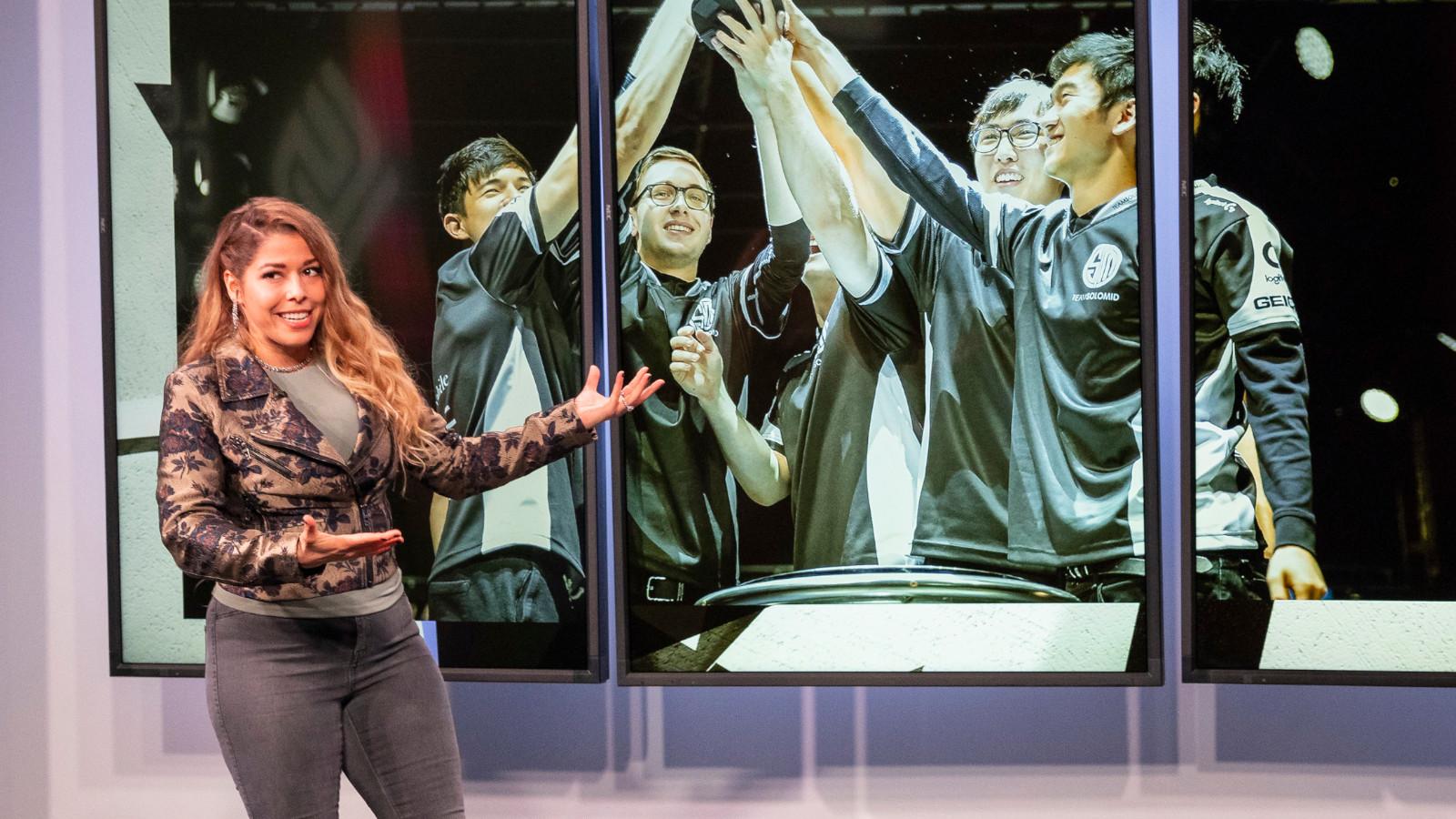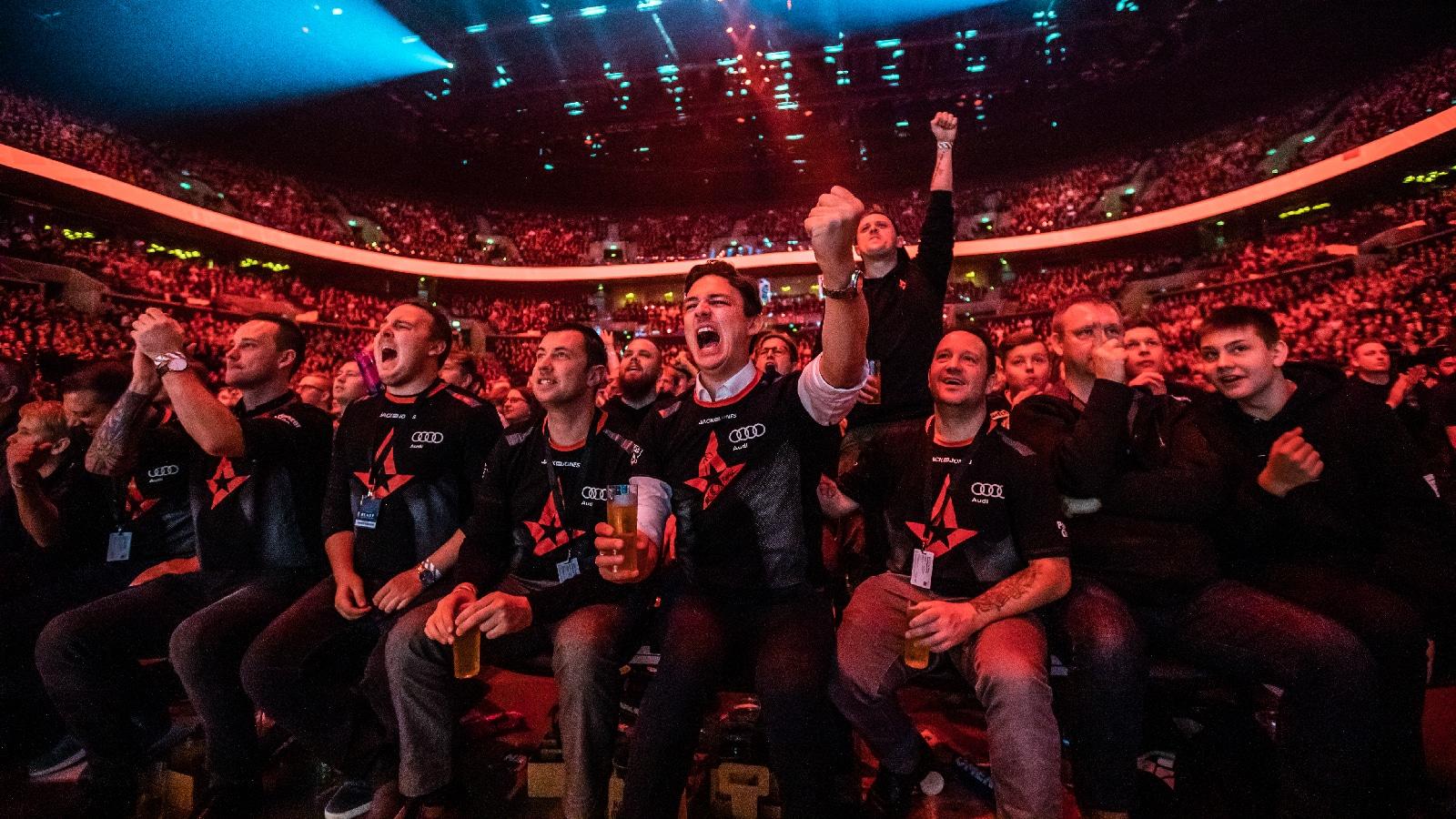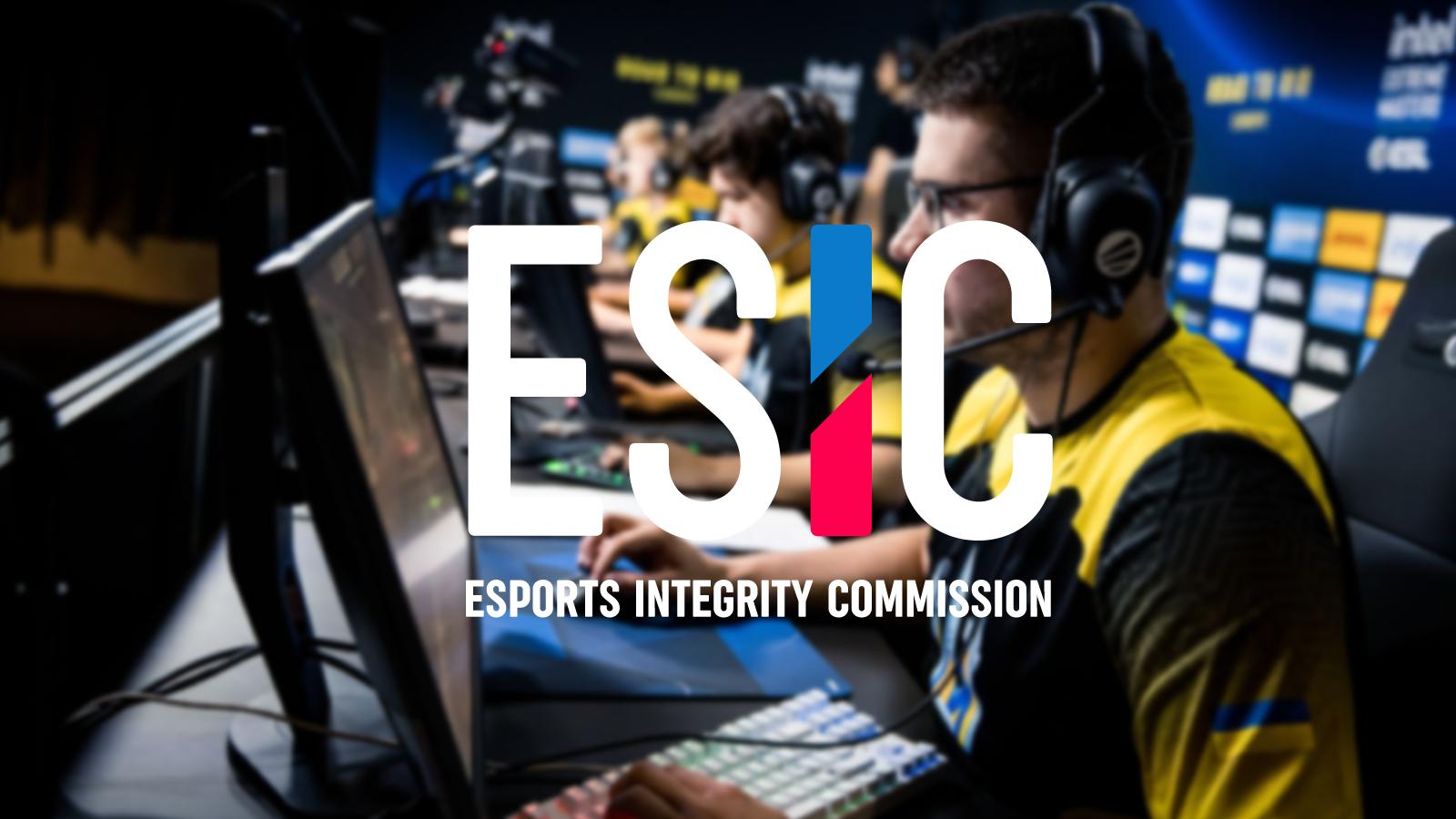The Esports Iron Curtain: The unreasonable demand for dissent
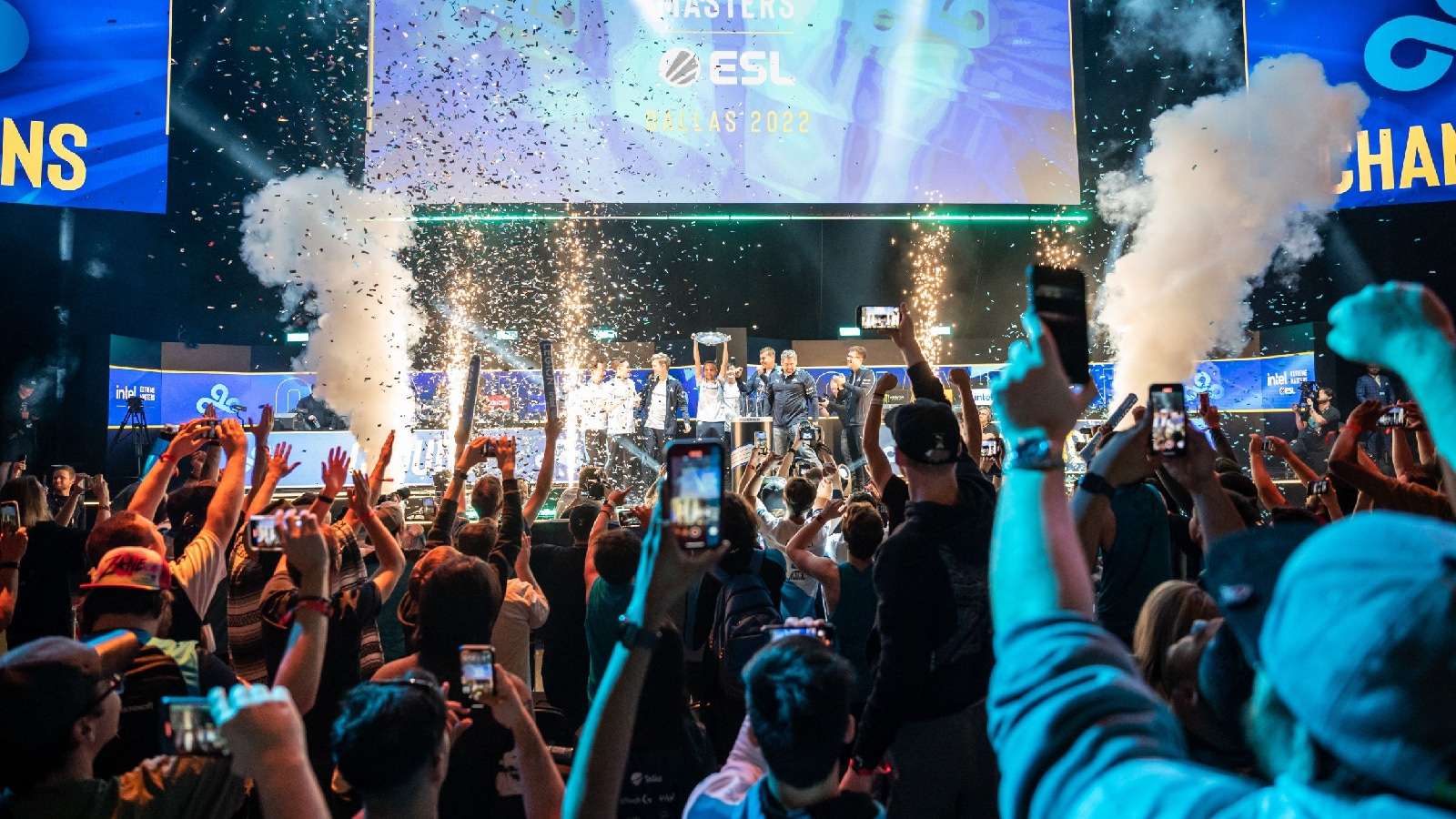 Antor Adam/ESL Gaming via ESPAT
Antor Adam/ESL Gaming via ESPATIn his latest opinion piece, Dexerto’s Editor-at-Large Richard Lewis explains why we, from a position of comfort and privilege, have no right to demand that Russian players and esports workers take an anti-war stance.
At the time of writing this, we have now gone past 150 days of the invasion in Ukraine. It is a conflict that political scientists have said is on course to be one of the bloodiest in modern history and that will significantly change the global landscape for decades to come. That time frame assumes a world where a successor to Vladimir Putin has a drastically different approach to foreign policy, which many Kremlin critics will tell you is a pipe dream. The ramifications of the war have bled into all aspects of global existence and so, of course, esports were not immune.
Maybe in the past, a conflict such as this wouldn’t have impacted esports as international competitions were limited to a few titles and, in truth, even fewer nations were relevant within them. The esports world was smaller and much more fractured back then, limited by technology as much as anything else. And so, despite all the many conflicts that have transpired globally since those formative years, it is probably no exaggeration to say the war that had the most profound impact on our industry until now was America’s “War on Terror.” That is what limited travel, snatched away visas and paperwork, fundamentally changed the way the world worked and its ripples of course reached us. Still, the changes it inflicted were nothing compared to the seismic collapse inflicted by the 2008 recession, which should tell you all you really need to know about its significance.
Some of the changes aren’t always apparent. For example, prior to Russia’s invasion of Ukraine, the industry had become increasingly reliant on padding its statistics thanks to the viewership from Ukraine and the CIS region. An organization like NAVI being in your grand final was usually an indicator you were about to break viewership records, especially during the pandemic, when esports were making significant gains in the attention economy.
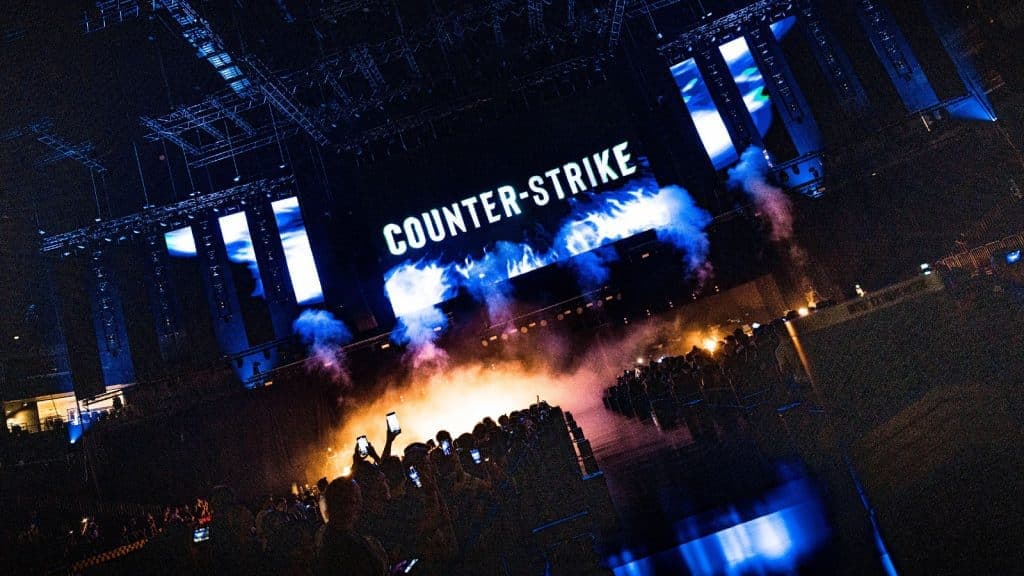 Helena Kristiansson/ESL Gaming via ESPAT
Helena Kristiansson/ESL Gaming via ESPATNow a number of factors, such as sanctions, retaliatory government fines, and tournaments feeling less inclined to offer Russian-speaking broadcasts, have seen those once reliable numbers decline. Losing that audience has been one of the largely unspoken reasons why there’s a sudden desire to expand into the Middle East, an untapped reservoir of new esports fans where the governments will actually underwrite costs to serve up the product. So in order to condemn warmongers, we got into bed with tyrants.
It will be remembered at best as a strange time in our industry’s history, and by the time we are ready to revisit it, the chances are I will no longer be around to participate in a sober retrospective. These articles have been an attempt to at least leave something behind for that moment, whenever it might be, but they’ve also been an attempt to try and make people aware of many of the moral issues our industry lets lurk in its collective blindspot.
A few days after the invasion of Ukraine’s Donbas region, I wrote about how the greatest CS:GO player in the world, Oleksandr “s1mple” Kostyliev, had been thrust into an uneasy spotlight, trying to spread a message of peace that would largely fall on deaf ears. I wrote about how any grandstanding about the horrors of war was largely moot when we allow war criminals to advertise on our broadcasts. I covered how international sanctions were going to force our once connected international landscape to fracture and return us to days gone by and how huge esports operations were having to relocate to get out from under the pressure of Putin. Of course, it was impossible to ignore the wild inconsistencies in how we applied our own sanctions to competitors and the fact they felt like poorly thought out kneejerk reactions that completely went against our “esports is for everyone” mantra.
And once you’re down that rabbit hole, you’re probably also going to ask some questions about why all wars and invasions are not treated equally, so I did that, too, by taking a look at how esports have issued zero sanctions to the Saudi Arabian-owned ESL or their business partner organizations that can be viewed as supportive of the continual airstrikes against civilians in Yemen.
Important happenings require a look from as many angles as possible, but there was still one that I felt many had neglected, and that was speaking to Russian esports workers. Imagine if you will one day your nationality goes from being just another flag in the constellation of participants to that of international pariahs and you didn’t have anything to do with it. You don’t support the war, you don’t support Putin, you’re just a Russian who until this moment was pursuing their career without wishing harm on anyone. Now you find yourself forced to make public statements on government policies you couldn’t influence, your salary cannot be processed due to international sanctions, and you are told you must relocate to the Balkan region in order to keep your job. Even then you will be abused by both sides, a quantum state of being where you are simultaneously a Putin shill and a traitor to your own country.
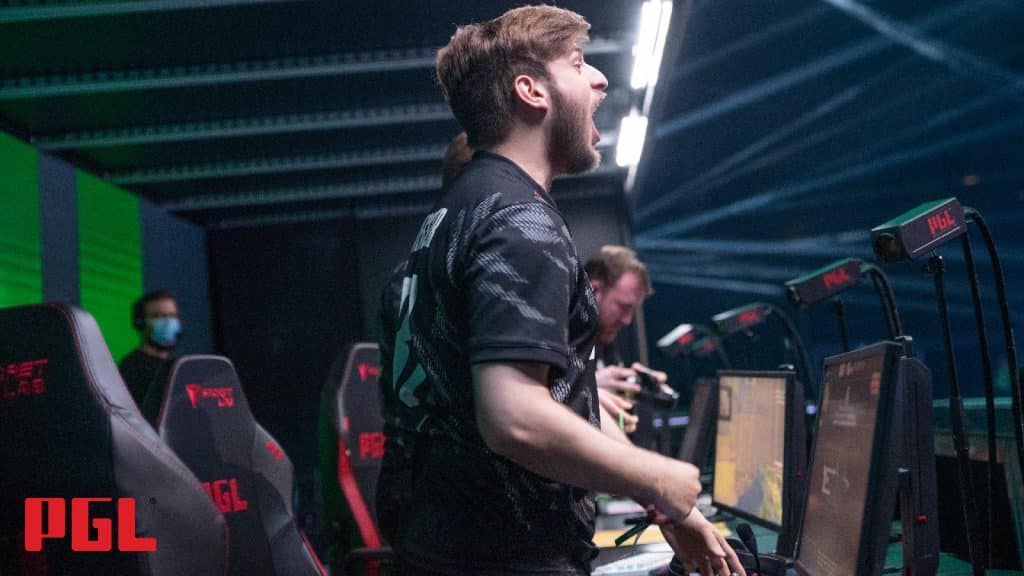 Stefan Petrescu/PGL
Stefan Petrescu/PGLPeople won’t want to hear it, but I’ll tell you where I’ve seen this exact same thing before. It was in the aftermath of the September 11 attacks, when peaceful American Muslims were suddenly assumed to be some type of enemy within. Suspicion, endless demands to publicly condemn the atrocity, mob retaliation fuelled by a US president that used rhetoric such as “either you are with us or you are with the terrorists” and evoking Christian vs Muslim sentiment by calling the war on terror a “crusade”. It was ugly and unfair then. Why do we not think so now?
As we do for almost everything these days, shortly after the invasion occurred we quickly got down to the all-important matter of sorting people into who was on the right and wrong sides. The sentiment was that if you were one of the “good” Russians, you should come out and say so by making a public statement against the war and quite possibly against Putin’s government. This was so widely agreed upon it became a talking point among fans and industry people alike when making a decision about whether or not to support things such as a player’s ability to compete, the signing of a Russian player to an organization, or whether or not a sponsorship deal could go ahead without objection.
The readiness with which this was adopted truly does tell you about how exaggerated the supposed backslide into authoritarianism in the West actually is because from our vantage point it seems the most natural thing in the world to be able to criticize the government. Many of the people passing judgment now about the appropriate way to handle the response to this conflict proudly did that, almost endlessly, between 2016-2021, during the US presidential campaign and Donald Trump’s tenure in office. Crucially, they did it without any consequences and in fact, they were mostly lauded for doing it. This would never be the experience of the average Russian citizen under Putin’s government.
The state updated and introduced a number of measures to be taken against political dissidents with a view to making sure these laws encompassed anything relating to Putin’s “special military operation” in Ukraine. Relevant to the matter of speaking out are the following:
Criminal Code Article 207.3. “Public dissemination of deliberately false information about the use of the Armed Forces of the Russian Federation, the exercise by state bodies of the Russian Federation of their powers”
This law is specifically aimed at stopping the media from using non-Russian sources as the informational basis for their broadcast and stopping personalities and influencers from sharing any news the Russian media deems to be “fake.” The penalty for violation of this law is a fine of 3-5 million rubles ($49,200 – $82,000), a prison sentence of three to five years, or a forced labor sentence of up to five years, circumstances depending. If the sharing of information led to what the state deems to be “grave consequences” the sentence is increased to 10-15 years imprisonment and the inability to work certain types of job or engage in certain types of activity for up to five years.
Code of Administrative Offenses of the Russian Federation Article 20.2. “Violation of the established procedure for organizing or holding a meeting, rally, demonstration, procession or picketing”
Updated as recently as July 25, this law means that anyone attending a rally that wasn’t applied for and agreed upon by the state in advance, will face either a fine of up to 50,000 rubles ($820), a compulsory labor order of up to 100 hours or up to 15 days imprisonment. Even holding up a supportive sign can result in a fine of 20,000-30,000 rubles ($328-492$) and, of course, place you squarely on the state’s radar.
Criminal Code of the Russian Federation Article 275. “High treason”
The most terrifying potential charge that can be leveled at any citizen of a totalitarian country. In Russia, the standard to meet “high treason” is relatively broad. They characterize it, in part, as “going over to the side of the enemy or providing financial, logistical, consulting or other assistance to a foreign state, international or foreign organization or their representatives in activities directed against the security of the Russian Federation.” The penalty for this is 12-20 years imprisonment. This has left many Russians who would wish to support Ukraine scared to do so as they fear even a donation to a charity, should it be noticed, could be squeezed to meet this standard. It would almost certainly be applied to any large Russian personality that used their platform to raise money, aid, or even promote awareness about the war crimes thus far committed by the Russian state.
These fears seem to be well founded. The initial weekend of the invasion saw thousands of peaceful protestors arrested and imprisoned. This included arresting children who took peace signs and flowers to the Ukrainian embassy in Moscow. Long-standing Kremlin critic Vladimir Kara-Murza was arrested for speaking out about the invasion in April and then held long enough for the state to trump up more charges against him. He now faces 10 years in prison under the aforementioned “fake news” law. Even those in local government will not be spared as Aleksei Gorinov found out. The Municipal Councillor of the Krasnoselsky district was sentenced to 7 years imprisonment for calling the invasion “illegal”.
Incidentally, even wealth and status will not save you. So far seven Russian oligarchs, including former oil company executives, have died in mysterious circumstances since the conflict in Ukraine began. The most recent, Alexander Subbotin, a former Lukoil executive who supposedly died after taking toad poison to cure a hangover. Don’t think about it too much. It’s just oligarch things.
The impact on Russian esports workers
Against a backdrop such as this, it isn’t hyperbole to say it is immoral that you make demands of Russian residents to speak out publicly against the war. What right does any of us have to demand compelled speech that places people in financial peril at best or physical harm at worst? And to what end? So we, who exist in countries that allow us to criticize both domestic and foreign governments and policies, know who shares our beliefs? Where should we draw the line in the future? Should we insist that North Koreans speak out against Kim Jong-Un? Should we request that Saudi Arabian apostates make themselves known? Of course, you absolutely would not demand these things, and so, for the life of me, I cannot fathom why we have placed such expectations on the Russian people either.
Strangely, all of what I’ve just said is a deeply unpopular sentiment. People who have expressed this belief have been filed away as pro-Putin or anti-Ukraine or some other such label. But I have always been hugely skeptical about the numbers supposedly coming out of Russia stating that over 75% of Russian people support the war. I see no reason for any Russian citizen to ever answer such a survey with their honest thoughts. There is no upside to honesty and, of course, many Russians share a dread of ever being on the wrong side of the government. It was only last year they were taking a leaf out of the Chinese playbook and announcing they had developed software that monitors social media for “deviant” behavior. I am sure many do earnestly support the war, but I am also certain there are many who do not that have to keep that belief private.
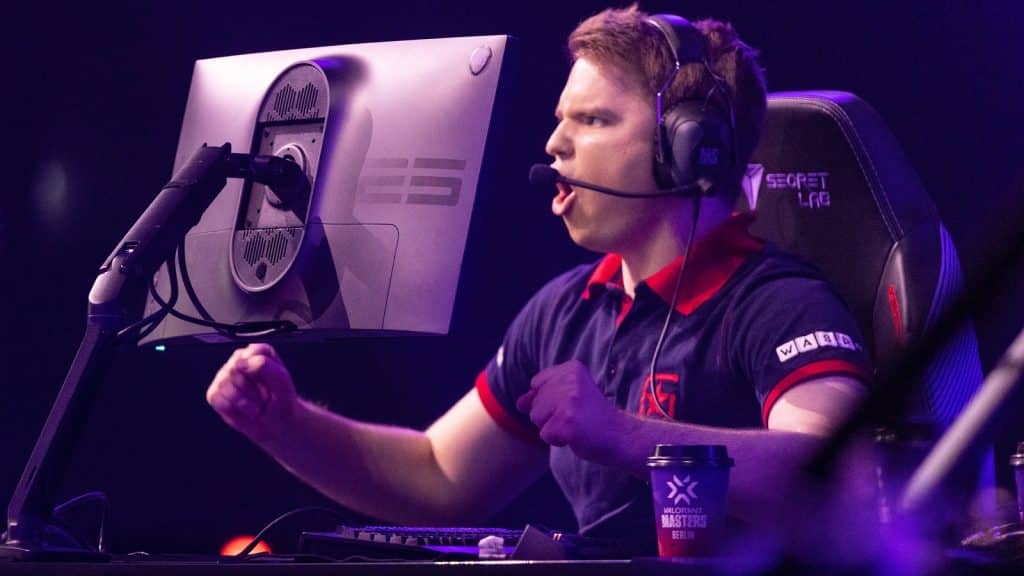 Riot Games
Riot GamesCertainly in the esports industry, where the age skews younger, I’ve yet to speak to a Russian who is for this war. Having interviewed a number of Russian esports workers for the next article in this series, there was a lot of experiential overlap. They were all anti-war but not in a financially secure enough position to risk saying so. Most had encountered some type of nationality-based hatred aimed at them, either publicly or privately. Some even had Ukrainian co-workers or colleagues who had demanded they speak out in public so they could be sure they were on their side. A handful had found themselves victim to a new type of esports witch-hunt, one where their livelihood was being threatened or taken away for a refusal to speak out.
I wrote this primer to try and encourage everyone to be more empathetic and avoid jumping to ridiculous conclusions. There’s too much of that right now. When you have prominent journalists publicly claiming meaningless squiggles are signs of pro players supporting Putin without even basic research, we’re close to mass hysteria. Doing and saying the “right” thing always comes at a cost, and for those who live under authoritarianism, it is often a price that cannot be understood by those who enjoy more, although not absolute, freedom. There are people like us on the other side of that iron curtain as well, and we should be supporting them.
